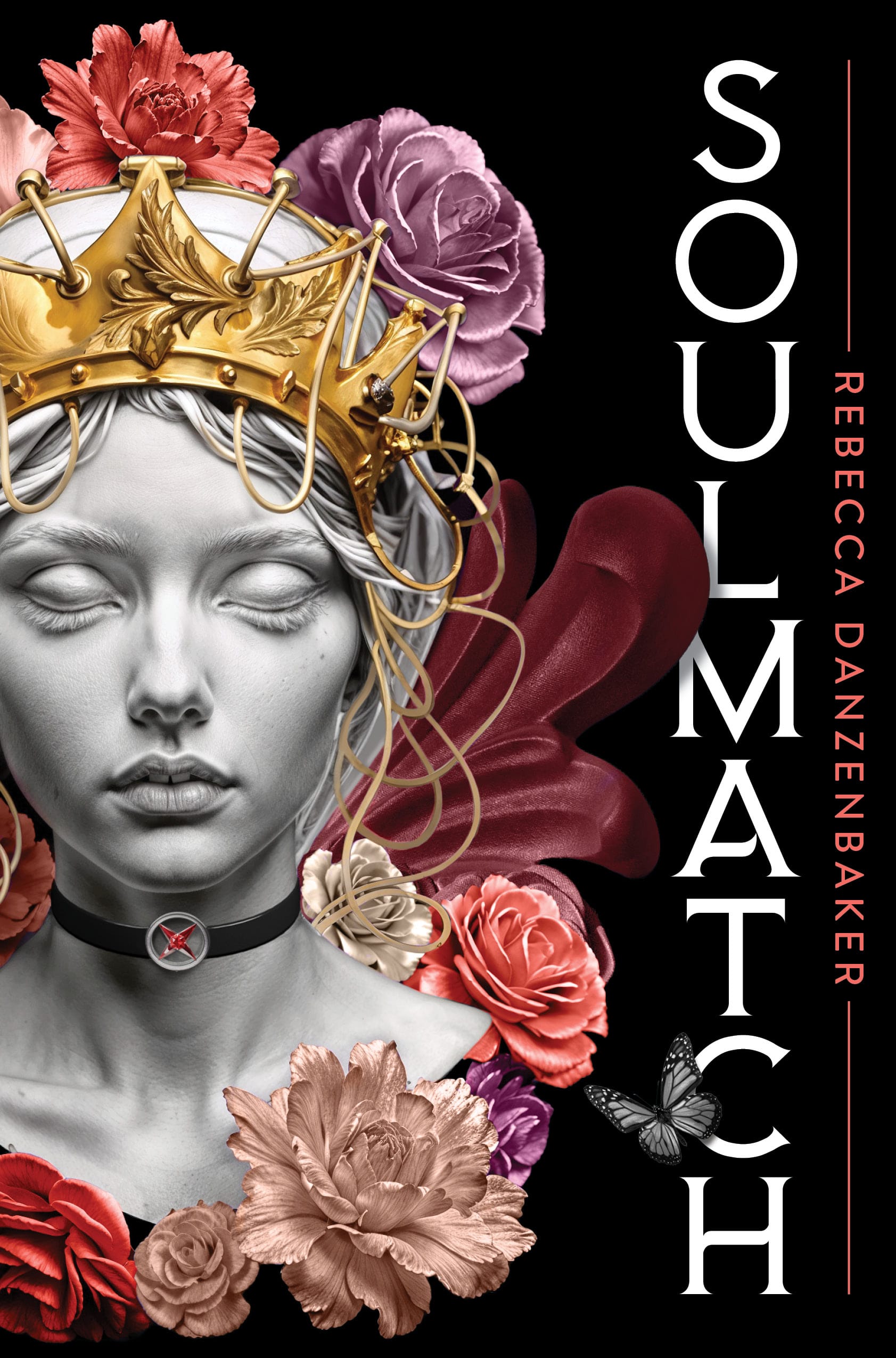Who are you?
I’m Rebecca Danzenbaker, author of Soulmatch – a YA dystopian romance publishing with Simon & Schuster about a future where you can’t escape the mistakes of your past lives. I’m also an award-winning portrait photographer in Ashburn, VA, worked in the corporate world for a decade, and was once an elementary school music teacher.
What do you write?
I write commercial YA romances heavy on the angst.
The niggling idea to write Soulmatch came in 2010, but at the time, I had two toddlers and was building my photography business while managing a team of 25 at Congressional Quarterly. Instead, I made world-building notes here and there over the next decade, telling myself I’d write it when I found the time.
COVID hit, and I started having panic attacks after reluctantly shuttering the photography business I’d nurtured for so long. On top of that stress, I feared that I or someone I loved would catch this mysterious illness, or we wouldn’t have enough groceries… or toilet paper!
The movie nights, jigsaw puzzles, and six-feet-apart jogs with friends didn’t begin to fill the hours I typically spent running my business. My preteen/teen children didn’t require and weren’t interested in constant supervision. A few weeks in, I joked with my husband about “finally writing that novel I always said I would.”
The next day, I was in the middle of a Photoshop workshop on CreativeLive when the futility hit me. I wouldn’t remember the complicated editing technique if and when I could reopen my photography business. On a whim, I searched their catalog for “how to write a novel.” The first course that popped up was “Wired for Story: How to Become a Story Genius” by Lisa Cron. I started it that day.
A week later, I had an outline for what would eventually become Soulmatch. Three months after that, I completed the first draft. I was hooked, enjoying the entire process from outline to edits. As a bibliophile who (until I began writing) digested over 100 novels per year, I loved my new superpower of crafting from scratch the type of story I enjoyed most - with savvy characters, witty dialogue, high-stakes action, and a heavy dose of romance. As far as themes go, I’ll never include torture or rape in my stories. If I don't want to read about it, I certainly don’t want to write about it. One (admittedly random) word I avoid is “palpable” because it always pops out to me, taking me out of the story. Yes, I see the humor in the word “palpable” being too palpable for my own use.
Where do you write?
My photo editing spot doubles as my writing nook. I have a comfy high-back chair in the combined kitchen and living room that allows me to feel like I’m part of the family, even when I’m at work. Sometimes I escape to my bedroom when things get too loud or busy; but I spend most days sitting in that chair, my MacBook resting on a lap desk, typing away.
I use Dabble to organize my characters, plot, research, and to write my first draft. I edit in Google Docs because (as of writing this) Dabble doesn’t yet keep version history. I don’t want to delete a passage accidentally and lose it forever, which I’ve come horrifyingly close to in both Word and Dabble.

When do you write?
I write best when I have hours of uninterrupted time, so I can fully immerse myself in the story. Before I begin, I close out as many to-dos as possible - paying bills, responding to emails, sending out photo galleries, etc. Writing is my reward for “taking care of business.”
When I first start a project, I’ll set a 15-20 minute timer and write in sprints, but once I’ve found my stride, I just write and write until I get hungry, thirsty, or am otherwise forced out of my chair. I become irrationally frustrated when I want to write but have to do something else, even if it’s a fun activity.
Why do you write?
Writing isn’t so much a calling for me as it is entertainment. As my career history suggests, when I no longer find joy in my profession, I pivot to a new one (after a ton of research and planning). If I didn’t absolutely adore writing Soulmatch and the story it became, I wouldn’t have persisted through the many rejections and countless revisions required to get an agent and publisher.
The querying and submission process was mentally taxing, but whenever I considered giving up, my family encouraged and motivated me to stick with it, as did critique partners, beta readers, and friends who fell in love with Soulmatch. In the story, the main character achieves her goals through effort, perseverance, and the help of carefully curated teammates. When I look back now, I see the parallels between her journey and what would become my own, so I guess a character of my own creation inspired me as well!
How do you overcome writer's block?
If I get writer’s block, it’s usually because my plot isn’t exciting enough to keep me invested. I revisit my outline and try to incorporate new obstacles to amp up the tension. If I’m stuck on how to do that, I do more research, brainstorm with a friend or in a notebook, take a shower, and/or go for a drive in silence. If all else fails, I start a new fifteen-minute timer and just type until the story takes hold again.
Bonus: What do you enjoy doing when not writing?
Hiking, watching musical theater, listening to audiobooks while working on jigsaw puzzles (a pastime I continued after COVID), jogging/walking with friends (no longer 6-feet apart), and binging the latest teen dramas, romances, or sci-fi shows and movies.
My thanks to Rebecca Danzenbaker for today's interview.


